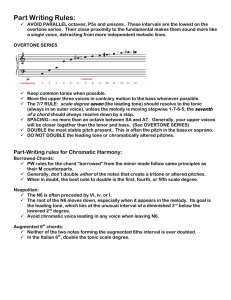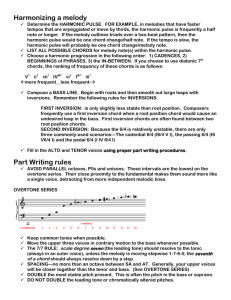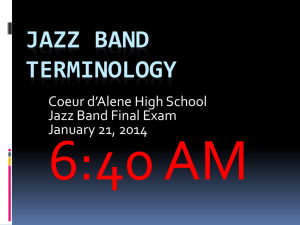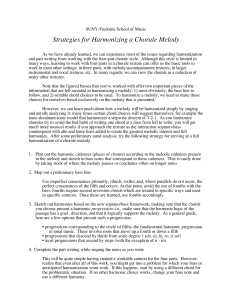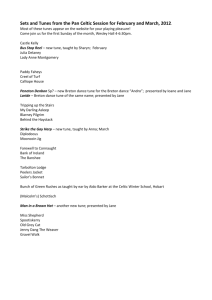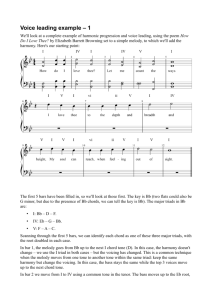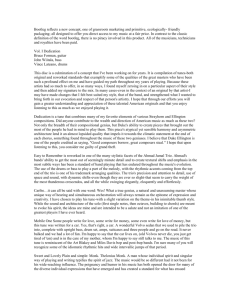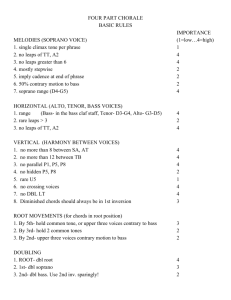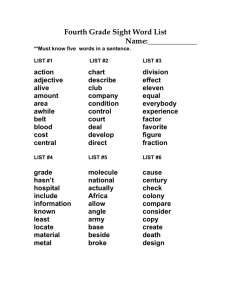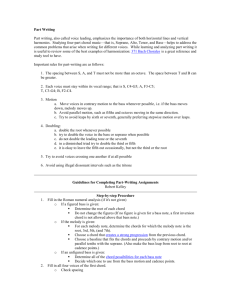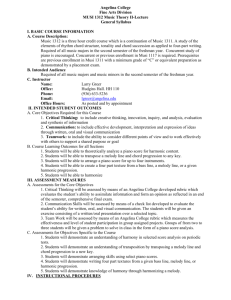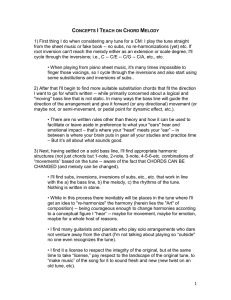credit listening terms
advertisement
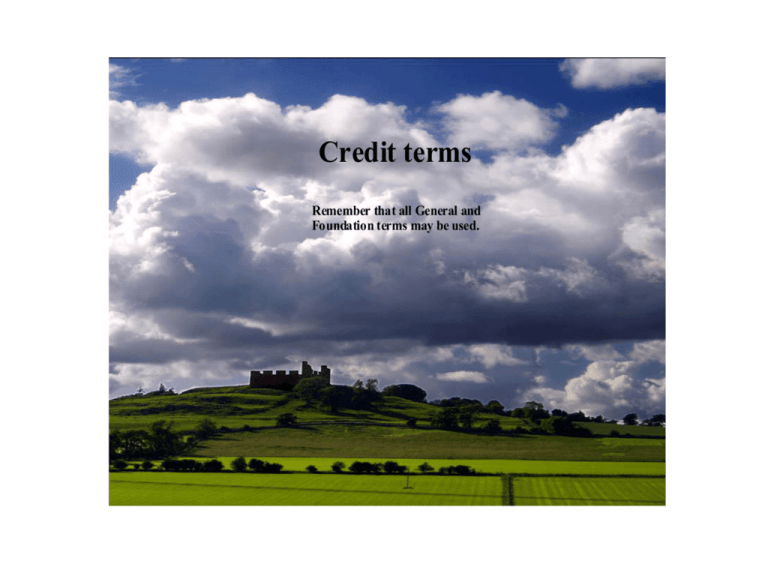
Credit terms Remember that all General and Foundation terms may be used. Credit Terms Alphabetically 12 string, slide guitars and fretless bass A capella - voices alone - no instruments Alberti bass - notes of a chord played separately, in the left hand of a keyboard Aleatoric - literally ‘left to chance’ Arco - with the bow - stringed instruments Aria - a melodic song from an opera. (Italian?) Atonal - does not settle in any key Boogie-woogie - 1920s piano style Perfect/Imperfect cadence - complete/incomplete Cadenza - ‘show off’ section for solo instrument Cantata/Oratorio/Passion - religious, chorus, soloists, orchestra, words from the Bible Chorale/hymn tune - 4 part voices, in German? Chords I, IV, V, VI - listen! Chorus - (usually) male and female voices together Classical -1750-1800. Piano, strings, simple harmony, not too many chord changes Coda - a tail piece at the end. Col legno - strings instruments to play with the wooden side of the bow Con sordino - with mutes. Usually brass. Contrapuntal - parts moving against one another, at different times Counter melody - separate melody against the tune Country - American/slide guitars/fiddle Cross rhythms - different rhythms at the same time Discord – nasty sounds! Dixieland – 1920s, jazzy, trumpet, clarinet Dotted rhythms – ‘amsterdam’ sounds Double stopping – two notes at the same time on a string instrument Flutter tonguing – Listen! (Flute, trumpet) Glissando – a slide – trombone, strings Grace note – ‘extra’ decorative notes Ground bass – a tune in the bass, repeated over and over again Homophony – all parts moving together. ( Or one melody with accompaniment) Impressionist – paints a‘dreamy’ picture. (Whole tone scale) Indian – tabla, sitar Interval – the distance between two notes Inverted pedal – high note, held over the music Major – bright and cheery Melismatic – a few notes for each syllable Minimalist – short ideas, repetition Minor – sad, gloomy effect Modal – folky, neither major nor minor Modulation – changing key Relative major/minor – same key, almost! Muted – brass, strings quieten down (con sordino) Obbligato – an obligatory (essential) decorative part of a piece – flute, trumpet Passing note – joins two melody notes together Pedal – held or repeated note in the bass Pibroch – complex solo bagpipe tune Pizzicato – plucked strings Polyphony – parts moving at different times Recitative – sung speech – often in an opera/musical Register – how high or low instruments sound Relative – major/minor keys, almost same notes Blues/Whole tone – Listen! Scherzo – bright, quick 3 in the bar (waltz) Sitar – Indian ‘guitar’ Soul – black American, religious Strophic – song where each verse has the same tune Suspension – discord, which resolves down Syllabic – one note for each syllable Tabla – two Indian drums, tied around the waist Through-composed – a song where each verse has a different tune Tierce de Picardie – minor tune ends with a major chord Tonal – has a recognisable key Tremolo – shake between two notes, often far apart Trill – shake between two notes next door Triplets – 3 notes in the time of 2 – ‘strawberry’ Vibrato – a gentle shake to improve the sound Voices – mezzo = medium high, countertenor = very high male, baritone = medium male Word setting – melisma or syllabic Word painting – music illustrates the word – shake, tumble,
